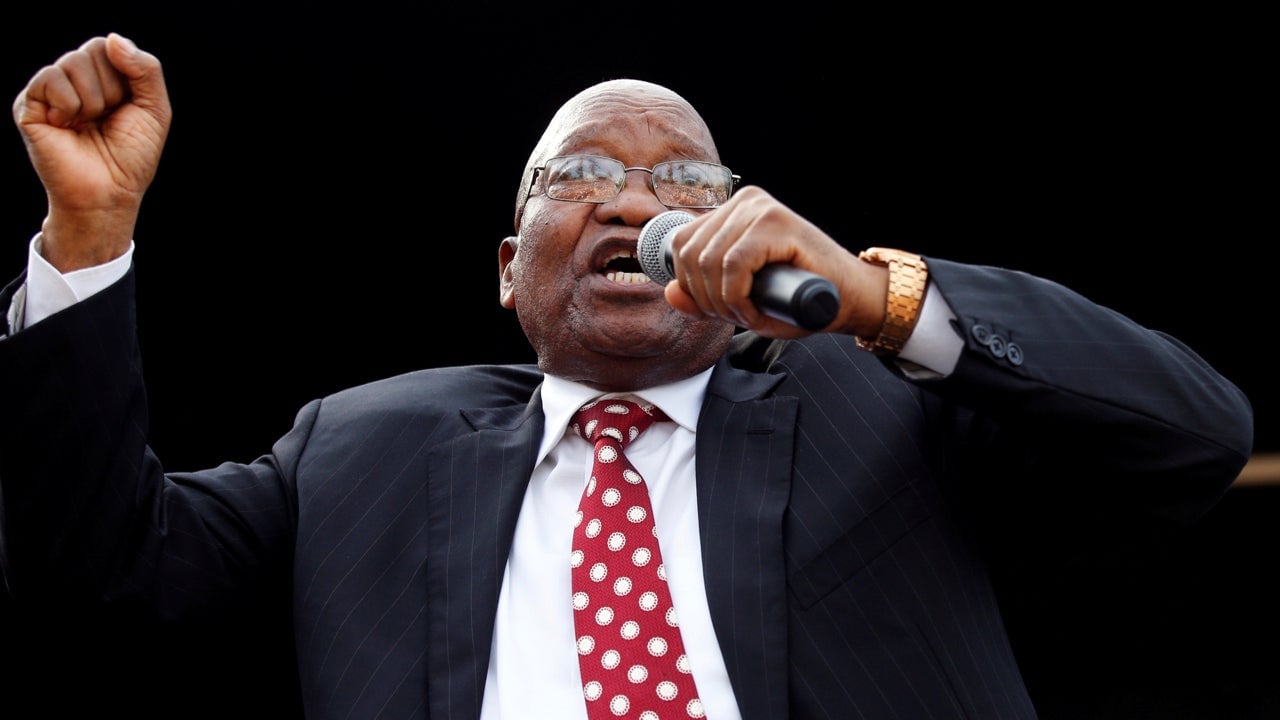After a scandal-ridden presidency, Jacob Zuma thinks Twitter can reinvent his image
“It’s me, former president Jacob Zuma,” was how South Africa’s president re-introduced himself to South Africans, via a video message on Twitter. Since joining last month, he’s amassed 163,000 followers with 38 tweets and managed to insert himself into popular discourse. It’s also been an effective distraction from his ongoing corruption trial.


“It’s me, former president Jacob Zuma,” was how South Africa’s president re-introduced himself to South Africans, via a video message on Twitter. Since joining last month, he’s amassed 163,000 followers with 38 tweets and managed to insert himself into popular discourse. It’s also been an effective distraction from his ongoing corruption trial.
When he’s not in court, life outside the Mahlamba Ndhlopfu official residence has been good to Zuma. With a natural talent for singing, Zuma is also planning to record an album in retirement, and multi-Grammy award winning Ladysmith Black Mambazo already want to collaborate with him. Opposition parties have vowed to mute his music career, suspecting corruption already. It’s on Twitter though, that Zuma has really found his new voice.
“I’ve not been engaging for a long time, and I thought it was high time I do so,” he said in another video, to verify that he was in fact the real @PresJGZuma. “I am part of the people and I must be with them to correct things to also respond to things that need to be responded to. It’s me, Jacob Zuma.”
Hardly a man of letters like his predecessor Thabo Mbeki, who prefers essay-like Facebook posts, Zuma goes for short videos on Twitter. He’s embraced the humor of Twitter and the parlance of black Twitter, in one tweet joking that he couldn’t post a new video message because he’d run out of data, endearing himself to the public again after an unpopular presidency. After a few innocuous tweets about Christmas and New Year’s Day quad bike trips, he quickly took on more serious topics like land redistribution.
His view on land—that there had been too much debate and not enough action—is not only populist, but also seemed to undermine the efforts of president Cyril Ramaphosa. The current president has now had to use time on the campaign trail to quell rumors that there is a rift between himself and Zuma.
With Twitter, Zuma is no longer constrained by the diplomacy of a presidential statement. Now, his response to media criticism is openly bitter and accusatory. As president, Zuma rarely took questions during press conferences and only gave carefully orchestrated one-on-ones. His newfound openness on social media has irked some journalists skeptical of his motives.
“Zuma’s new hobby might be entertaining to his followers but it is by no means harmless,” wrote South African political journalist Ranjeni Munusamy, a critic of the former president. “For someone who never took accountability seriously, whether through the media, parliamentary questions, or even the public protector’s investigations, his sudden willingness to ‘engage’ on big issues is duplicitous.”
Less than a tenth of South Africans are on Twitter, but it remains the platform of fast and irreverent political debate. It took awhile, but from leaders like Paul Kagame and Donald Trump, Zuma has learned how 280 characters—and a 2-minute video—can shift the national conversation.
Sign up to the Quartz Africa Weekly Brief here for news and analysis on African business, tech and innovation in your inbox